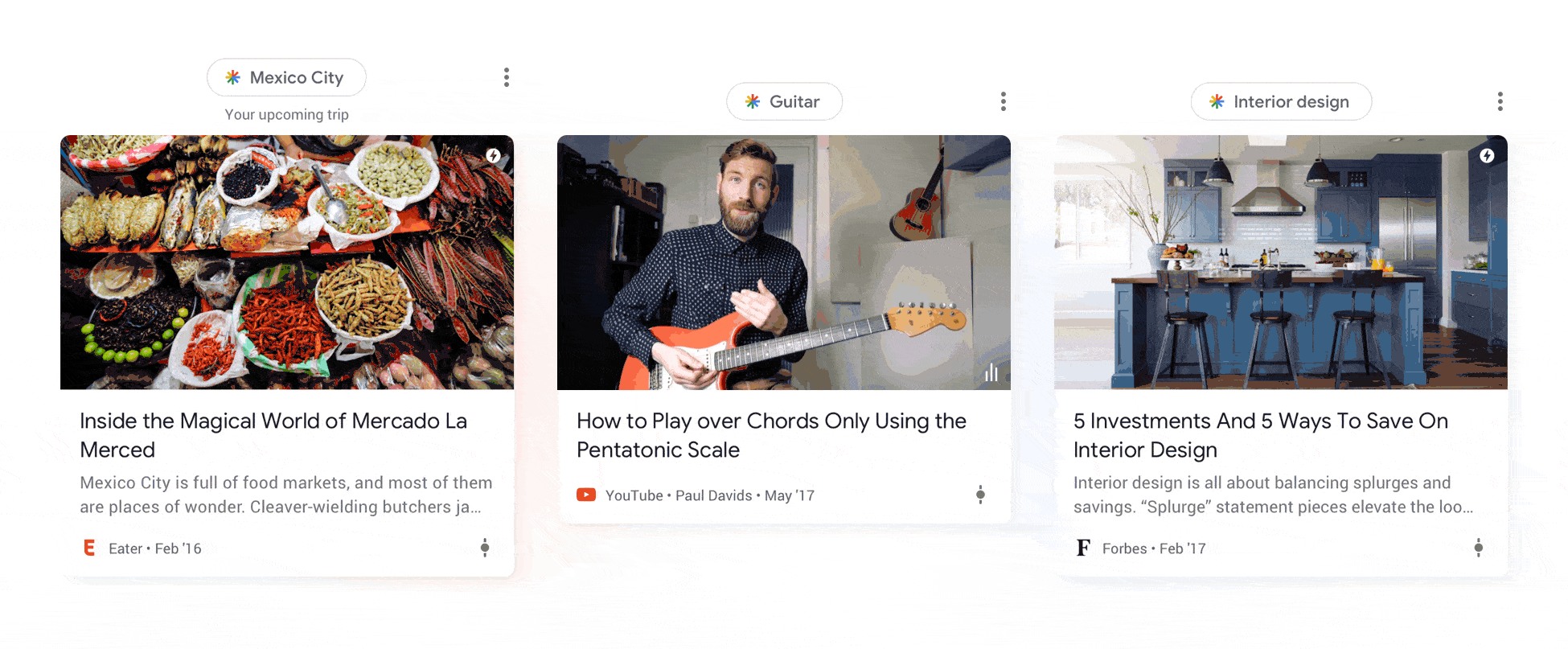Digital Transformation
Google’s New Search Could Significantly Change Content Discovery
Search engines have historically been distant cousins to social media platforms. Both channels let people discover valuable content—just in different ways. Search was more transactional, asking users to come prepared with a keyword or a question. Social was more open, letting users wander until they found something they liked. But with Google’s latest announcement, they’re about to become a lot more like twins.
On September 24, Google unveiled plans for new search features. The centerpiece of the revamped search will be Google Discover, which offers users a customized content feed regardless of whether they type in a search query. It’s unclear if Discover will also draw on past searches, but people can pick topics that interest them to fill the feed. The recommendations won’t just be breaking news, either. According to Karen Corby, Google’s group product manager for search, the move will still serve up evergreen pieces of content that “aren’t new to the web, but are new to you.”

Sound familiar? This version of Google starts to look a lot like parts of Facebook, Reddit, Twitter, and Pinterest. As we’ve pointed out on this site in the past, tech companies like to copy each other. Instagram copied Snapchat’s Stories feature. Google is morphing search into a Facebook-esque newsfeed. And word’s out that Instagram is testing a repost feature that’ll function just like Twitter retweets. We’re not that far away from a world where all major platforms have slightly different versions of the same features.
Google Discover does have an important distinction, though: It’s still not social. You can’t like or retweet or upvote (for now). If you work for a publisher or a brand, that has its pros and cons. You won’t be able to build a community or interact with your audience, but I’d argue Google is making a smart play. Social media platforms have gotten hammered for facilitating filter bubbles and digital mobs. A curated content feed—without loud commentary from obnoxious high school acquaintances—sounds appealing, especially coming from a go-to destination like Google. It’s like the quiet night you need at home while everyone else is out raging recklessly.
The announcement could also signal a new approach to SEO. Anyone who creates content for a digital audience has had to appease search algorithms. That often leads to forcing keywords into titles, subheads, meta descriptions, and more. Google has definitely improved its SEO requirements over the last few years to favor high-quality content, but most marketers and publishers I talk to still feel like they have to play a game they don’t totally understand. By giving users a chance to find stories without entering a search, some of that awkwardness disappears.
In a blog post about the release, Nick Fox, Google’s VP of product & design for search and assistant, said, “All of this marks a fundamental transformation in the way Search understands interests and longer journeys to help you find information.”
It’s no accident that Fox used the word “journeys” multiple times in his article. As brands and publishers continue to focus on the customer experience and loyal audiences, search engines and social media platforms have the technology to power those long-term relationships. Google will likely continue to prioritize ad sales from paid search, but these updates suggest the search giant is taking a more nuanced approach to content discovery.
Image by Edho Pratama / UnsplashGet better at your job right now.
Read our monthly newsletter to master content marketing. It’s made for marketers, creators, and everyone in between.




